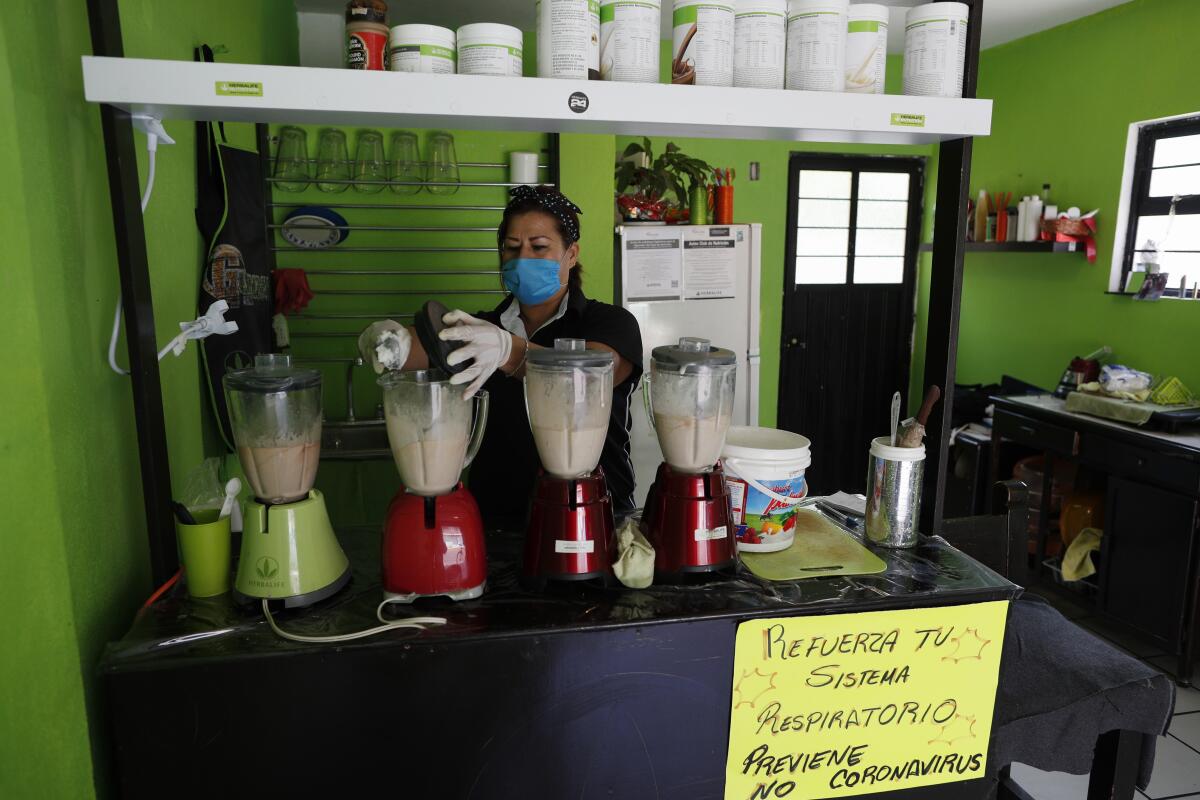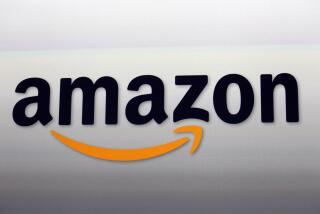Herbalife sells $600 million of junk bonds so it can buy back shares

- Share via
Herbalife Nutrition Ltd. managed to persuade investors to lend it $600 million so it could buy back shares, an unusual move at a time when companies are borrowing billions of dollars to shore up liquidity during the coronavirus pandemic.
The Los Angeles maker of weight-loss shakes and supplements that counts Carl Icahn as its largest shareholder sold the unsecured debt Wednesday at a yield of 7.875%, down slightly from early unofficial pricing discussions of 8%, according to people familiar with the matter.
Proceeds from the offering will be used for general corporate purposes, which could include the purchase of stock or capital investment, said the people, who asked not to be named discussing a private transaction.
Herbalife products are distributed by a network of direct sellers rather than through stores, and the company has garnered controversy for its multilevel marketing structure that encourages sellers to recruit others to hawk the products. But the business has fared well during the pandemic.
Net sales increased 7.7% on a year-over-year basis in the first quarter, which ended March 31, and the company expects only a small decline in preliminary April volumes as a result of the virus, according to an earnings release this month.
“The demand for our products and for our services has gone up around the world,” Chief Executive John Agwunobi said on a recent earnings call.
A representative for Bank of America Corp., which is leading the deal, declined to comment. A representative for Herbalife didn’t respond to a request for comment.
Debt-financed share buybacks haven’t been the priority for companies suffering from sliding revenues during the outbreak. But Herbalife has a history of doing so with its last buyback for $600 million in May 2018, according to data compiled by Bloomberg. It also authorized an ongoing five-year $1.5-billion buyback program in October 2018.
The new 5.25-year bond yields slightly more than the company’s existing $400 million of 7.25% unsecured notes due in 2026 that last traded at 99.75 cents on the dollar, according to Trace data.
Moody’s Investors Service rated the bonds B1, or four levels below investment grade. Although the company has good profitability, cash flow and geographic diversity, there are parts of its business model that are fragile, Moody’s analyst Chedly Louis wrote. S&P Global Ratings graded the notes BB-, or one step higher.
Herbalife’s global multilevel marketing structure has been under scrutiny for years by a number of regulatory agencies, and its business model is highly reliant upon its ability to recruit and retain sales representatives around the world, Louis wrote.
The U.S. Securities and Exchange Commission and Department of Justice are investigating whether Herbalife violated the Foreign Corrupt Practices Act in 2006 through 2016. The company has reached an “understanding in principle” with both agencies and is expected to resolve the investigations soon, according to a May 7 filing.
Herbalife shares climbed 1.8% on Wednesday to $44.03.
Seligson and Boston write for Bloomberg.
More to Read
Inside the business of entertainment
The Wide Shot brings you news, analysis and insights on everything from streaming wars to production — and what it all means for the future.
You may occasionally receive promotional content from the Los Angeles Times.










